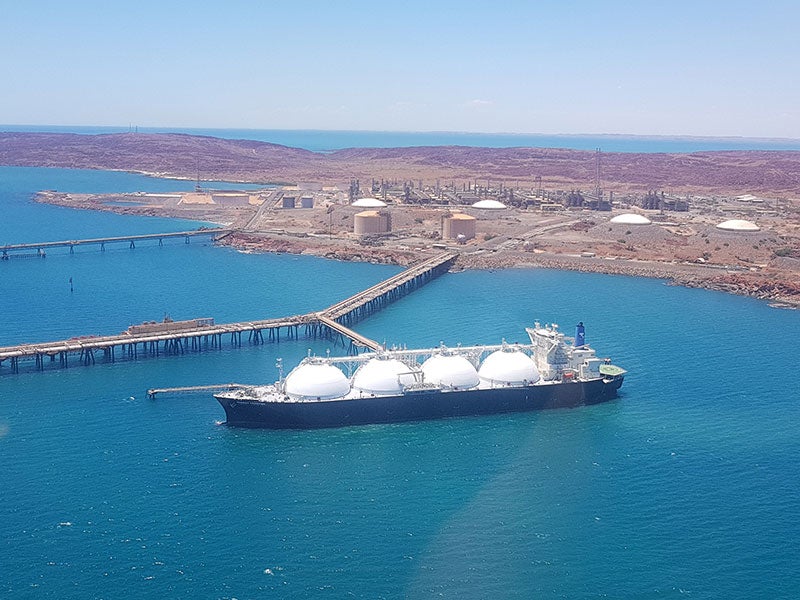
Western Australia’s (WA) giant offshore gas fields contribute to less than 1% of the state’s finances and employ less than 1% of the state’s workforce, an Australia Institute report has found.
Published today, the report called out the state’s liquified natural gas (LNG) sector for its minimal contributions to the state budget – with 2021 seeing only $310m (AU$430m) of its $19.5bn (AU$27bn) revenue being directed to the state government in royalties – as well as its high emissions and low employment rates.
The report found that gas operations on the North West Shelf made up the vast majority of LNG royalties, while Woodside’s Pluto, Chevron’s Wheatstone and Shell’s Prelude reportedly pay no tax or royalties despite making up two-thirds of LNG production in the state.
“Oil and gas companies like Woodside and Chevron are being given this valuable and finite resource virtually for free, making huge profits from its sale, creating few jobs and returning almost nothing to everyday West Australians,” said Mark Ogge, principal adviser at the Australia Institute’s climate and energy program.
“Ordinary people paying their car registration fees are contributing more to the WA budget than royalties from oil and gas companies; there’s no doubt West Australians are getting ripped off.”
How well do you really know your competitors?
Access the most comprehensive Company Profiles on the market, powered by GlobalData. Save hours of research. Gain competitive edge.

Thank you!
Your download email will arrive shortly
Not ready to buy yet? Download a free sample
We are confident about the unique quality of our Company Profiles. However, we want you to make the most beneficial decision for your business, so we offer a free sample that you can download by submitting the below form
By GlobalDataThe report calls for policymakers to turn their attention to industries that offer greater employment opportunities and help to reduce the state’s emissions, and to reform policies that see greater returns from LNG royalties.
“If the WA government paid half as much attention to LNG royalties as it does to its share of the goods and services tax (GST), the people of WA would benefit for generations to come,” Ogge adds.
According to state climate action group Clean State, LNG projects are WA’s “largest and fastest growing source of carbon pollution”, with current and proposed LNG projects predicted to add 41.6 million tonnes of carbon dioxide equivalent a year, a 61% increase on WA’s 2005 emissions total.
The gas majors under scrutiny have defended their economic contributions to the state, with a Chevron spokesperson telling Guardian Australia it has paid about $5bn (AU$7bn) in Australian state and federal taxes and royalties since 2009, adding that their contribution goes “far beyond tax.”
According to the Federal Government Australia is the largest LNG exporter in the world, accounting for 21.8% of global LNG exports in 2020, with WA making up 57% of this figure.



